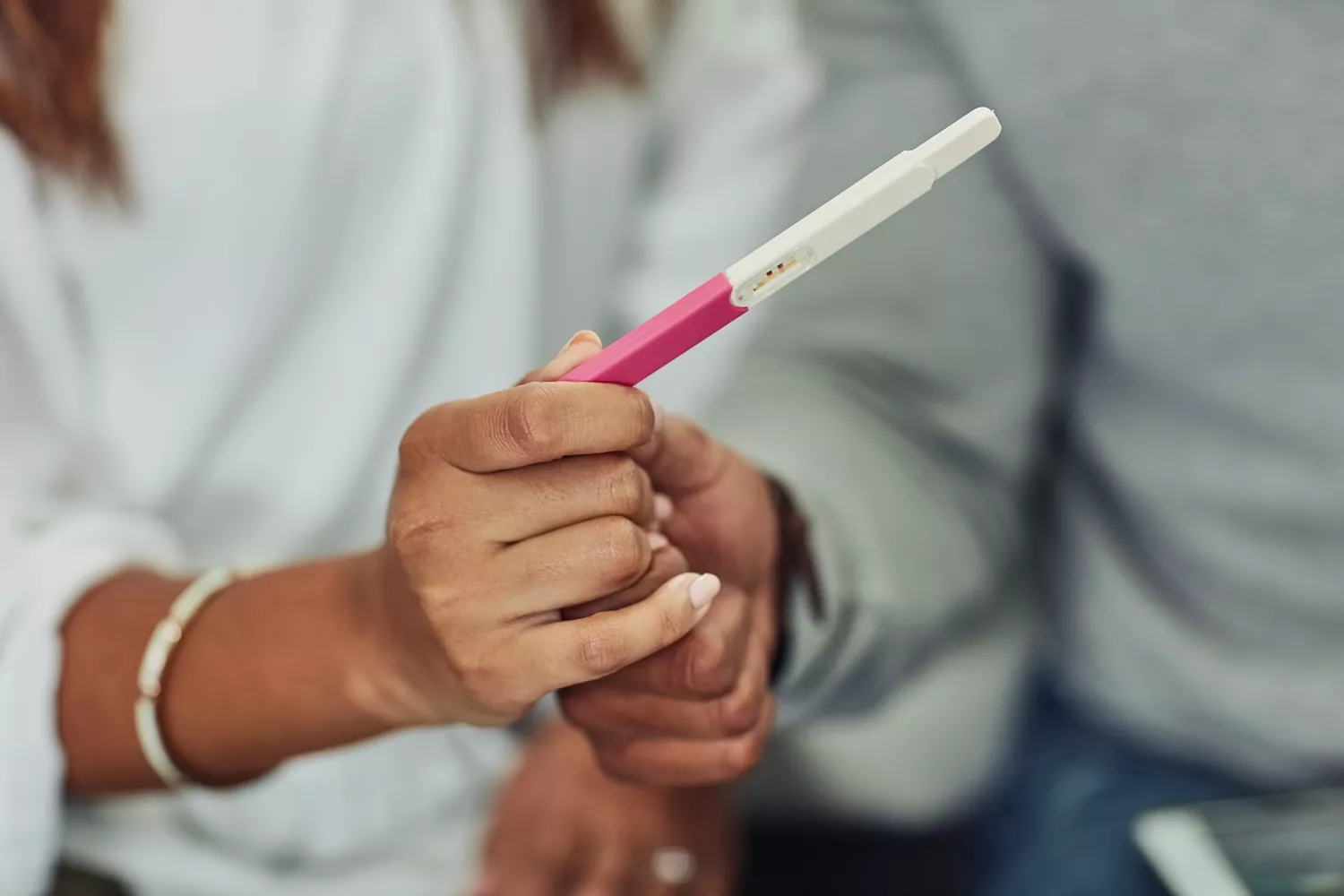What is Leukorrhea during pregnancy?


Your body undergoes a variety of changes during pregnancy. There is a lot of adjustment to make, from your growing belly and cravings to urinating more often. Leukorrhea is a mild, odorless vaginal fluid which increases as you progress in pregnancy.
Leukorrhea is usually noticeable at the beginning of pregnancy. However, it can increase in volume closer to the due date. This type of discharge is usually normal and healthy. However, some women may be concerned that it could indicate a vaginal infections.
Below you’ll find 411 if you notice a vaginal discharge and are wondering what that means or if it is something you should report to a doctor. Here’s all you need to learn about leukorrhea, from its cause to what to do if it gets worse.
What You Need to Know about the Placenta during Pregnancy
Leukorrhea – Quick Facts
Vaginal discharge is a small amount of fluid produced by the glands that line your vagina. This discharge has the purpose of removing old cells from your vagina.
The medical term leukorrhea refers to a vaginal discharge that is a white, odorless, clear secretion. This is normal, says Meleen Ching, M.D. an OB/GYN and medical director of Women’s Health NYU Langone Family Health Center. She is also a clinical associate professor of NYU Grossman School of Medicine. Leukorrhea helps the vagina clear any infection and creates a protective layer of mucosa on the vaginal walls.
Leukorrhea can be caused by ovulation or an increase in estrogen, such as during pregnancy or while taking certain birth control pills. It can also be influenced during pregnancy, or when taking birth control pills.
What causes leukorrhea?
Dr. Chuang says that normal vaginal secretions like leukorrhea are caused by physiological processes occurring in your vagina. During your reproductive years, you will excrete between 1 and 4 milliliters per day.
Dr. Chuang adds that leukorrhea can also be caused by the good bacteria, lactobacilli. These are commonly found in yogurts and probiotics. This allows the production of lactic acids, which keep the vagina healthy and prevent infections like bacterial vaginosis.
Mallon says that hormonal changes due to diet, sleep and sexual activity can also cause leukorrhea. “[Leukorrhea] can also be linked to the cycle of menstruation, as well as increases in estrogen during pregnancy.”
How does leukorrhea change during pregnancy?
This may be due to the increased amount of leukorrhea that occurs during pregnancy. The change in consistency and the increase in pregnancy hormones may cause this.
Dr. Chuang says that the vagina prepares for childbirth by increasing the production of vaginal secrets to prevent infection.
As your pregnancy progresses, the leukorrhea will continue to increase–particularly in the early third trimester, notes Mallon. This, along with the loss of the mucous membrane near the end, can make pregnant women wonder if amniotic liquid is leaking.
How Does a Mucus Plug Look?
What does normal vaginal discharge look like during pregnancy?
It is not unusual to experience more vaginal discharge during pregnancy, particularly if it appears clear, watery or white. Leukorrhea can be one of the first signs of pregnancy. It increases in quantity and lasts throughout all three trimesters. If you notice anything unusual, such as a change in the color, scent, or consistency, it is best to consult a doctor.
Dr. Chaung adds, “There shouldn’t be any odor, burning, or itching.” “Yellowish, thick, clumpy discharge that is green, fishy or malodorous may indicate an infection that needs to be treated.”
How to Deal with Leukorrhea during Pregnancy
Leukorrhea may cause you to experience wetness in your underwear or chalky stains, but this is not a serious problem. You can change your underwear frequently, wear cotton underwear or use a panty lining to keep it dry if you find this bothersome.
Dr. Chuang says that increased leukorrhea can be a natural phenomenon. Usually, no action is required. If you want to improve your vaginal health you can try probiotics, Kombucha and yogurt.
Avoid douching. You may feel cleaner, but you’re removing the healthy bacteria which line your vagina. This can help to prevent infection. If your doctor agrees, then you can use a spray bottle to wash off the urination. Be sure to dry the area completely and wipe it from front to rear.
Mallon recommends that if you do not have a pregnancy and are experiencing leukorrhea, it is best to switch methods of contraception, avoid irritants like perfumes and scents, and stay away from synthetic underwear.
She adds that “thong underwear and underwear too tight can also trigger discharge because it stimulates friction in the area.” Leukorrhea can also be caused by a latex intolerance. Switching to condoms made without latex or using another form of birth control could help.
What to do when you need to contact a health care provider
If you see any of these signs, you should contact a healthcare provider.
- Fever
- You may experience pain in the abdomen or pelvis
- Changes in color, smell, or consistency are apparent.
- You may notice itching, swelling, or redness in the genital region.
- You may be experiencing symptoms that are related to your medication
- You may have blisters or sores in your vaginal or vulva
- Burning urination
- You may be suffering from a sexually transmitted infection (STI) or you are worried that you might have one
Leukorrhea usually isn’t a cause for concern, but you should consult your doctor if the color, consistency or smell of your discharge changes. Dr. Chuang notes that a fishy odor could indicate bacterial vaginosis, while clumpy or white discharges may indicate a yeast infection. Yellow green mucopurulent discharges are indicative of sexually transmitted disease.
If you have any suspicions about sexually transmitted diseases, contact your doctor immediately. “An untreated STD such as chlamydia, gonorrhea or gonorrhea can cause pelvic inflammation disease (PID), an ascending genital infection,” says Dr. Chuang. PID can also cause infertility due to fallopian tube obstruction and increase the risk for pregnancies within the fallopian tubs ( ectopic pregnant), which may require an emergency surgery with the removal of the tubes.
Leukorrhea can be a normal experience, and is rarely cause for alarm. You should be fine as long as you are aware of what you consider normal and keep an eye on your genital area. Contact a healthcare provider if you notice anything unusual or worrying. You can also chalk it up as just another pregnancy-related change.










